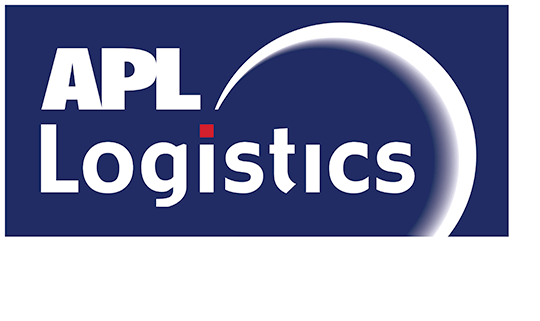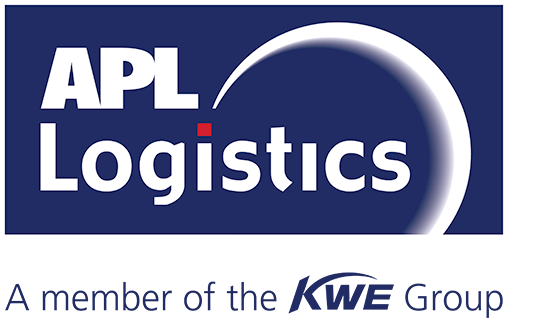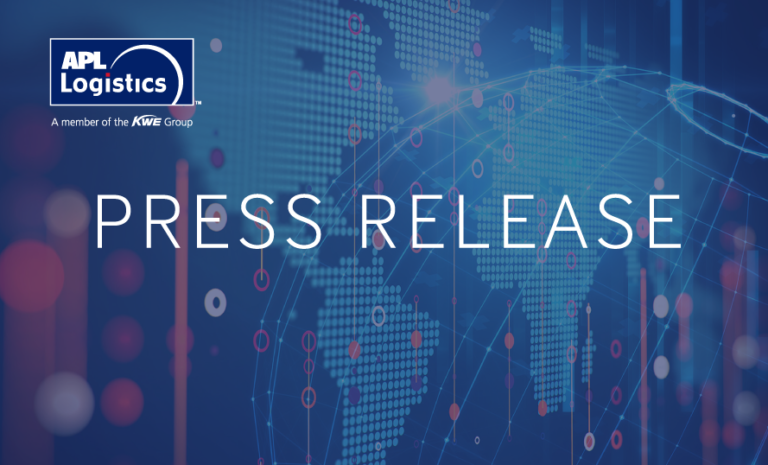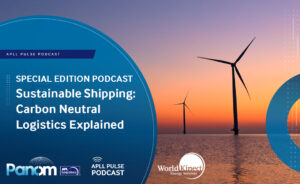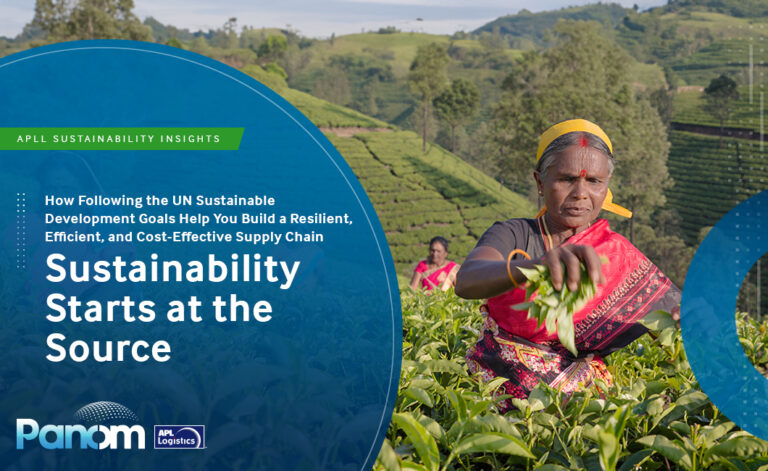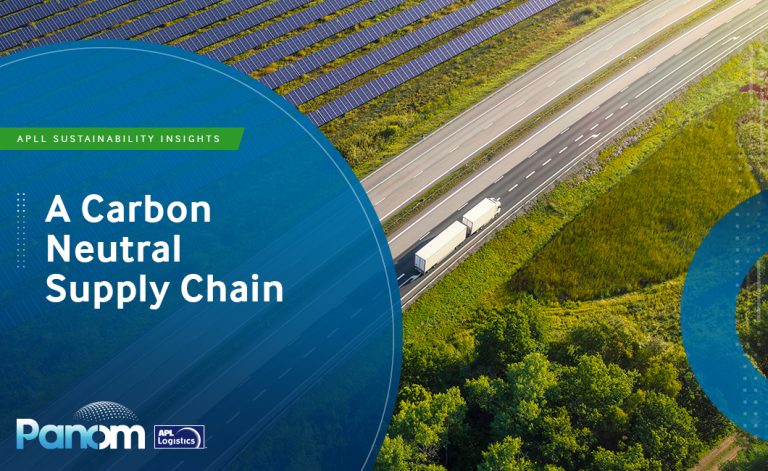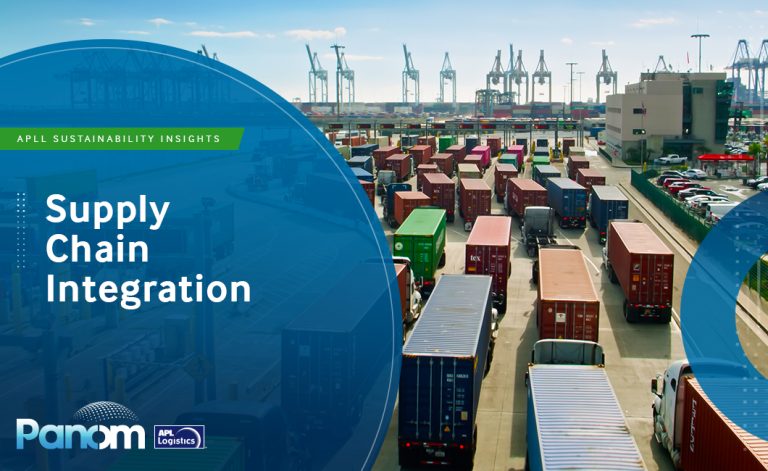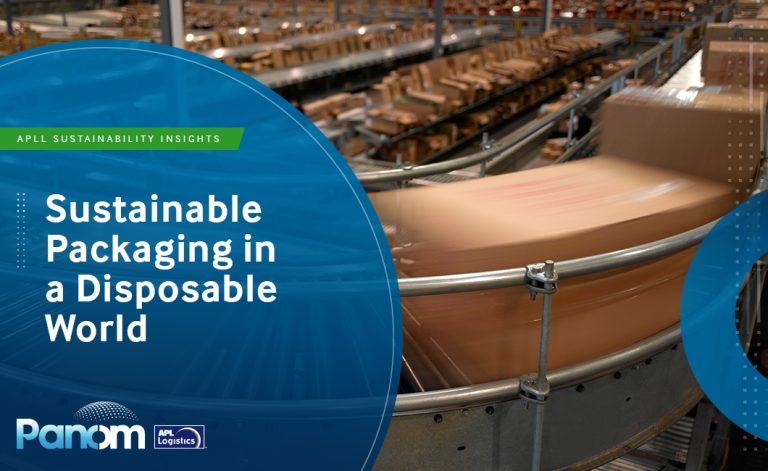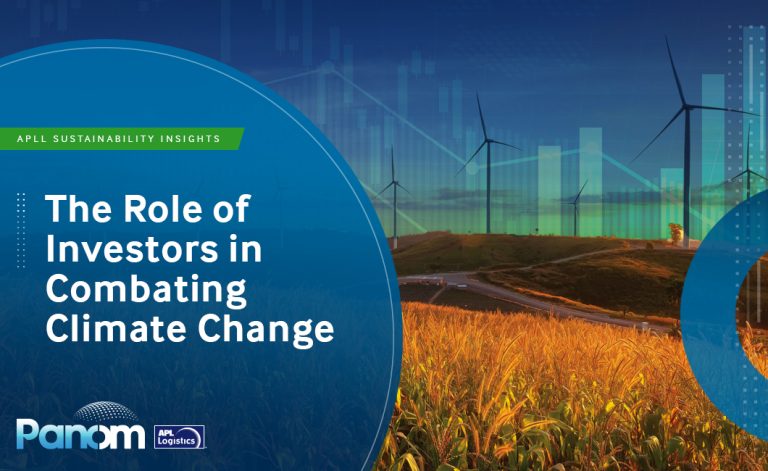The time to be reactive has passed. There can be no delay in addressing the warming climate, deforestation, and pollution around us. At APL Logistics, we are doing our part to be proper stewards while staying at the vanguard of the movement to decarbonize global supply chains.
- We track key environmental impact indicators across our global warehouses and offices.
- We work to find low-carbon, end-to-end solutions across our customers’ operations.
- We adhere to globally accredited environmental, social, and governance reporting and disclosure frameworks.

Addressing our
Emissions Impact
A huge part of our sustainability reporting and accountability journey has been to calculate our annual Scope 1, 2, and 3 emissions footprints. We successfully measured and released these baselines for FY2022 and immediately submitted ambitious emissions reduction goals to the Science-Based Targets initiative. This is just the first part of how APL Logistics is getting aggressive with our internal and external decarbonization plans.
Check Out Our Strategy
Over the past three years, APL Logistics has committed to developing comprehensive sustainability goals, strategies, and roadmap. We started with a GRI-compliant Materiality Assessment that outlined what issues matter to our company the most. This process helped to identify and prioritize our next ESG steps, culminating in APL Logistics’ first company-specific sustainability report in 2022. These reports are published annually, and you can access the most recent 2023 report and our GRI Index below.
APL Logistics’ 2023 Sustainability Report

SCOPE 1, 2, AND 3 DATA COLLECTION
In January 2022, we started to track key environmental indicators across the hundreds of global warehouses and offices where we have operational control. Embarking on this journey helped us set comprehensive Scope 1 and Scope 2 emissions baselines that are derived from our site-level fuel and energy usage. Working with an external consulting team, APL Logistics then determined our relevant Scope 3 categories and began collecting the necessary data for these emissions calculations. Our Scope 1, 2, and 3 baselines* for FY2022 are:
Scope 1 & 2: 24,647.93 MT CO2e
Scope 3: 202,027.45 MTCO2e
* We are continually striving to improve the accuracy of our emissions reporting. Several amendments were made to our 2022 Scope 1 figures due to a data unit error, improved data quality, and improvements in calculation methodology.

Reducing our Emissions
From our 2022 baselines, we have derived 2030 absolute reduction goals with the help of NSF Consulting Services and an Environmental Defense Fund fellow. In 2023, APL Logistics submitted emissions reduction goals to the Science-Based Targets initiative. In April 2024, the goals were officially accepted by SBTi, and APL Logistics was added to SBTi’s roster of committed companies. (Learn more about the Science-Based Targets initiative.)
- By 2030, reduce APL Logistics’ Scope 1 and 2 emissions by 42% from a 2022 baseline.
- By 2030, reduce APL Logistics’ Scope 3 emissions by 42% from a 2022 baseline.
These targets and their associated reduction strategies are detailed further in our 2022 Sustainability Report, but a majority of our short-term efforts will focus on energy efficiency projects and fleet electrification. We will be tracking and sharing our year-over-year progress, and each goal will be revisited if achieved before 2030.
Scope 1 and 2 Emissions Inventory Verification Statement (2022)
Scope 1 and 2 Emissions Inventory Verification Statement (2023)

Emissions Visibility
DECARBONIZING YOUR SUPPLY CHAIN
Our day-to-day mission is clear: we enable the most efficient movement of our customers’ goods around the world. Recently, the word “efficient” has taken on a whole new meaning for us though. The expansion of our emissions measurement, visibility, and reduction capabilities has allowed APL Logistics to maximize our customer’s operational, economic, and environmental supply chain efficiencies.
Analytics and Reporting

- Pull Scope 3, Category 4 emissions data
- Identify high emitting lanes or carriers across your network
- Work with our operations team to optimize your routes, modes, and nodes
- Act on your emissions insights and start decarbonizing today
Our Emissions Data Source
All of APL Logistics’ emissions reports and measurements are supported by EcoTransIT, a 3rd party, Smart Freight Center-verified carbon data aggregator. Our emissions data is in accordance with the GLEC Framework, GHG Protocol (Corporate Standard), and EN 16258. EcoTransIT’s methodology is determined using an energy-based bottom-up approach and methodology.

Our Sustainability Team
Connect with our Sustainability teams today to learn more about how APL Logistics is driving our environmental sustainability agenda and green customer solutions

Eva James
Global Sustainability Lead

